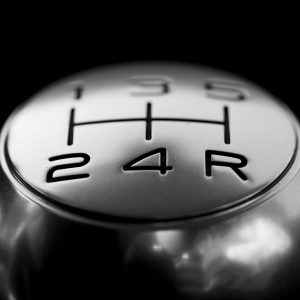 In complex product liability cases, the physical vehicle itself may be the most important piece of evidence in the case. The most compelling evidence when establishing the existence of a defect in a vehicle is the existence of other similar incidents, and the ability to review and re-inspect a similar vehicle, which had previously exhibited a similar defect, can be extremely valuable in prosecuting a potential future case.
In complex product liability cases, the physical vehicle itself may be the most important piece of evidence in the case. The most compelling evidence when establishing the existence of a defect in a vehicle is the existence of other similar incidents, and the ability to review and re-inspect a similar vehicle, which had previously exhibited a similar defect, can be extremely valuable in prosecuting a potential future case.
In this particular case, the plaintiff’s law firm has a policy of acquiring possession of the subject vehicle as part of its initial investigation. This is normally done by purchasing the vehicle directly from an insurance company that has possession of the vehicle post-accident. In the rare case that the firm’s client has possession of the vehicle (and title), the firm requests that the client allow the firm to retrieve the vehicle from them. If the client is not in possession of the vehicle, and the firm is unable to purchase the vehicle directly from an insurer, the firm purchases the vehicle at auction if possible.
The firm covers the expense of securing the vehicle, and said expense is treated like any other case expense at that point. During the pendency of the case, the firm and the expert witnesses for the case – or for any other case turning on the same vehicle model / defect – inspect the vehicle, dissemble parts if necessary, etc. It is the firm’s practice at the end of the case to request from the client that the firm be allowed to retain ownership and possession of the vehicle.
Here, the parties agreed on a settlement amount, and the requirement that the vehicle be destroyed was brought up only after the plaintiff had agreed to settle. The client simply wanted to be paid, and the lawyer’s objections were discarded because the client is the ultimate decision-maker re settlement.
When the lawyer sought direction, the Tennessee Board of Professional Responsibility concluded that: “It is improper for an attorney to propose or accept a provision in a settlement agreement, in a products liability case, that requires destruction of the subject vehicle alleged to be defective if that action will restrict the attorney’s representation of other clients.”
The firm had assured the defendant that the vehicle will not be placed back on the road, and that when the firm decides to no longer retain the vehicle, it will provide a certificate of destruction – which should satisfy the defendant’s purported safety concerns. Given the nature of the defendant’s business and the practice area of the inquiring lawyer, demanding the destruction of key evidence can only be viewed as an attempt by the defendant to disadvantage the firm in other current or future litigation. “By requiring destruction of the alleged defective product after settlement in a products liability case, defense counsel would accomplish indirectly what they cannot accomplish directly by precluding the attorney from representing other plaintiffs with similar claims. Further, the firm’s file retention policy includes retaining material pieces of evidence as part of the file because it may be evidence in any subsequent malpractice suit against the firm. Without the ability to review the most important piece of evidence in the underlying products liability suit, the law firm would be left essentially defenseless if a former client brought a professional malpractice claim. There is also a public policy consideration. The ability for plaintiffs’ firms to act as industry watchdogs is both good public policy and was specifically addressed as a vested responsibility during Congress’s enactment of the Federal Motor Vehicle Safety Standards.”
Tennessee Ethics Opinion No. 2019-F-167 (April 15, 2019).